Over the past time, our Party and State have always paid attention to developingeducation and training in ethnic minority and mountainous areas; respecting and ensuring human rights and civil rights of ethnic minorities, especially prioritizing the right to education of ethnic minorities.
Along with the implementation of policies and laws on ensuring the right to education of ethnic minorities, people's awareness of self-study, self-training, and building a learning society in ethnic minority communities has been raised, contributing to improving the intellectual level and quality of life, eliminating hunger and reducing poverty, and promoting sustainable development in ethnic minority and mountainous areas.
The ethnic minority and mountainous areas of Quang Tri province have a natural area of 313,657 hectares, accounting for 68% of the province's natural area; the number of ethnic minority households is 21,374, with 96,577 people, accounting for 14% of the province's population. Determining that "education and training is the top national policy" and to ensure fairness in access to education, the Party and the State have issued many policies to support and invest especially in education and training in ethnic minority and mountainous areas, such as: Policies on training and using cadres, civil servants and public employees who are ethnic minorities; policies on prioritizing learners who are ethnic minorities, depending on each subject, there are separate policies; policies on teaching languages and writing to ethnic minorities, enhancing Vietnamese for preschool children; policies for teachers and educational managers working in special schools, areas with especially difficult socio-economic conditions.
In addition to central policies, Quang Tri province has issued many resolutions related to the socio-economic development of ethnic minority and mountainous areas as well as policies related to the development of education such as: Resolution No. 07 dated May 23, 2017 of the Provincial People's Council stipulating the distance and area as the basis for determining students who cannot go to school and return home during the day; the percentage of allocated funding for cooking for students of ethnic minority boarding schools, schools that organize centralized cooking for students who are beneficiaries of policies in Decree 116 of the Government in Quang Tri province; Resolution No. 09 dated July 28, 2018 of the Provincial People's Council on the policy of training and fostering commune-level cadres and civil servants of ethnic minorities in Quang Tri province for the period 2018-2025, with a strategy to 2030; Resolution No. 19 dated July 20, 2019 of the Provincial People's Council on developing the system of ethnic boarding and semi-boarding schools in Quang Tri province until 2025, with a vision to 2030; Resolution No. 72 dated May 25, 2021 on approving the investment policy for the project to eliminate temporary classrooms, borrowed classrooms, renovate and upgrade ethnic boarding and semi-boarding schools in the province and build Huong Hoa High School...
These are specific and practical policies to create conditions to support and promote the right to education for ethnic minority and mountainous areas, helping ethnic minority people have more opportunities to access education, overcome difficulties to study, and contribute to the development of their homeland.
Up to now, the central and local policies to ensure the right to education of ethnic minorities have been well implemented and brought about practical results. The rate of 5-year-old preschool children, primary school-age students and secondary school-age students in ethnic minority and mountainous areas attending school has reached 100%. The rate of high school-age ethnic minority students attending school has reached 83%. The rate of ethnic minorities aged 15 and over who can read and write fluently in the common language has reached 93%. 100% of ethnic minority commune-level cadres and civil servants have been trained in skills to serve their work.
However, in addition to the achieved results, ensuring the right to education of ethnic minorities in Quang Tri province still faces some difficulties and challenges because the educational level and intellectual level of ethnic minorities are still quite far from the general level of the province and the whole country. The quality of education of ethnic minority students is still low; there is a big gap in education between ethnic minority students and Kinh students.
In ethnic minority areas, especially remote, isolated and extremely disadvantaged areas, people's right to education is still hindered due to limited educational infrastructure, sparse population, inadequate teaching staff, there is still a situation of students studying in combined classes of 3 levels for primary school and 2-3 ages for preschool, the dropout rate is still high, especially at high school level.
To ensure the right to education of ethnic minorities in the province, it is necessary to have comprehensive and synchronous solutions, combining the implementation of State policies, the participation of local authorities, the community and the education system, in which the role of local authorities is very important. It can be affirmed that the State's priority policies to ensure the right to education of ethnic minorities are comprehensive, from supporting the promotion of socio-economic development to educational activities.
The issue is the integration of social resources, national target programs (sustainable poverty reduction, new rural construction, socio-economic development in ethnic minority and mountainous areas), taking the National Target Program on socio-economic development in ethnic minority and mountainous areas as the core to promote the overall development of the socio-economic picture in ethnic minority and mountainous areas, including the development of education and training.
Continue to invest in building schools and classrooms that meet standards, especially in remote, isolated, border areas, and schools with boarding students. Review and supplement policies to support education in ethnic minority and mountainous areas in accordance with local realities; prioritize resource allocation for education in mountainous, isolated, and remote areas. Increase support for tuition exemption policies, support for study costs, food, accommodation, books, and transportation to school; expand boarding and boarding policies, and the scale of boarding and boarding schools, helping all ethnic minority students in remote and isolated areas have stable living and studying conditions.
There are specific policies and priorities in recruitment, use, planning and appointment in accordance with the characteristics, qualifications, capacity, occupation and field of ethnic minority cadres, civil servants and public employees. Encourage and attract teachers to work and stay long-term in ethnic minority and mountainous areas; prioritize training and recruitment of ethnic minority teachers to create closeness and improve the effectiveness of teaching ethnic minority language and culture.
Developing vocational education linked to local practices such as agriculture, textiles, handicrafts, community tourism... helps learners have the opportunity to learn throughout their lives and establish careers, start businesses, and sustainably reduce poverty.
The right to education of ethnic minorities is the foundation for human development, determines the development of ethnic minority communities and ensures social justice, playing an important role in realizing other economic, social, civil and political rights.
Enhancing the role and responsibility of local authorities at the grassroots level to implement solutions to ensure the right to education of ethnic minorities; closely coordinating between all levels, sectors and the whole society so that all ethnic minority children can go to school, expanding lifelong learning opportunities for people to study and develop in an equal educational environment is not only a legal and ethical responsibility, but also a prerequisite to shorten the development gap between mountainous and plain areas, improve the intellectual level of the people, develop human resources and strengthen the great national unity bloc.
Thanh Hai
Source: https://baoquangtri.vn/can-dam-bao-dieu-kien-hoc-tap-cho-vung-dong-bao-dan-toc-thieu-so-va-mien-nui-193841.htm


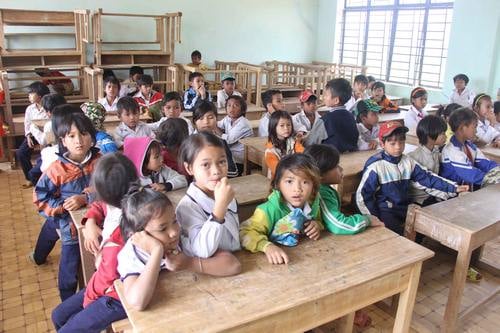
![[Photo] T&T 1 and Ho Chi Minh City 1 People's Police Teams won the men's and women's team championships](https://vphoto.vietnam.vn/thumb/1200x675/vietnam/resource/IMAGE/2025/5/22/39db06ae67cb4001b7a556e8d9a56d07)















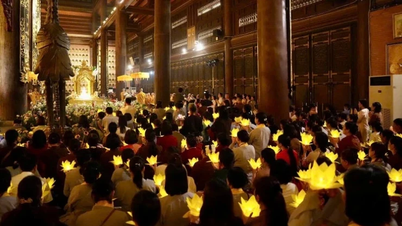







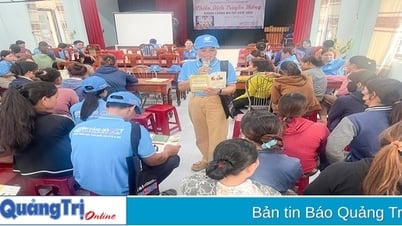
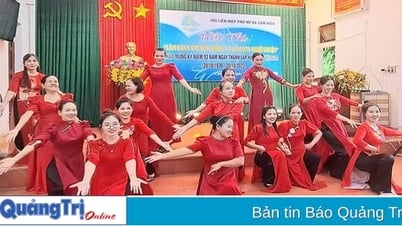









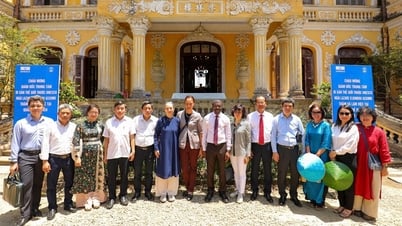








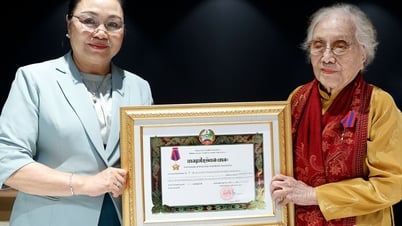




















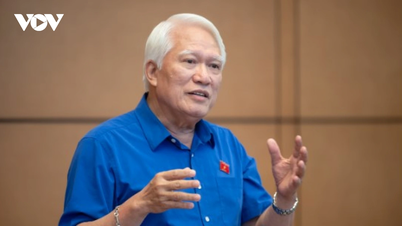



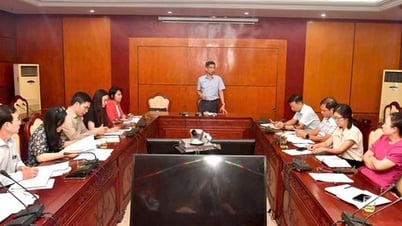

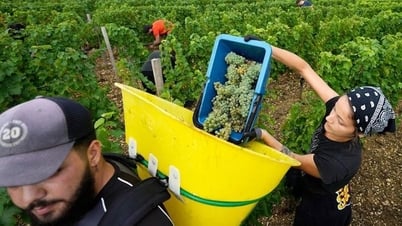

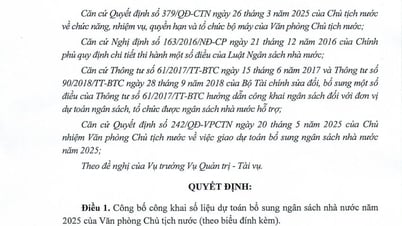

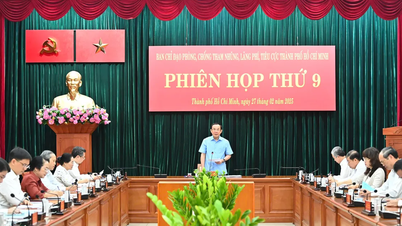



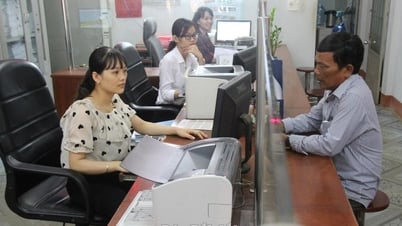

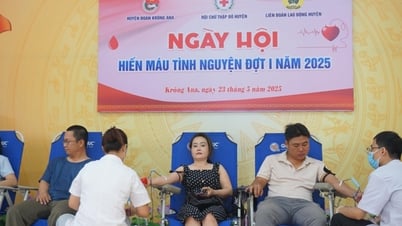
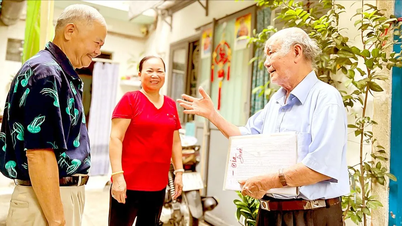
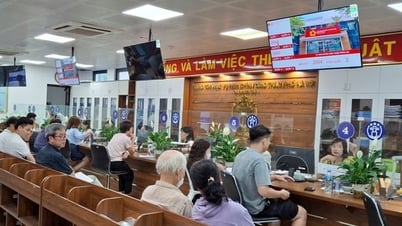







![[Podcast] Week introducing more than 500 OCOP products in Hanoi](https://vphoto.vietnam.vn/thumb/402x226/vietnam/resource/IMAGE/2025/5/22/d144aac2416744718388dbae3260e7fd)

Comment (0)